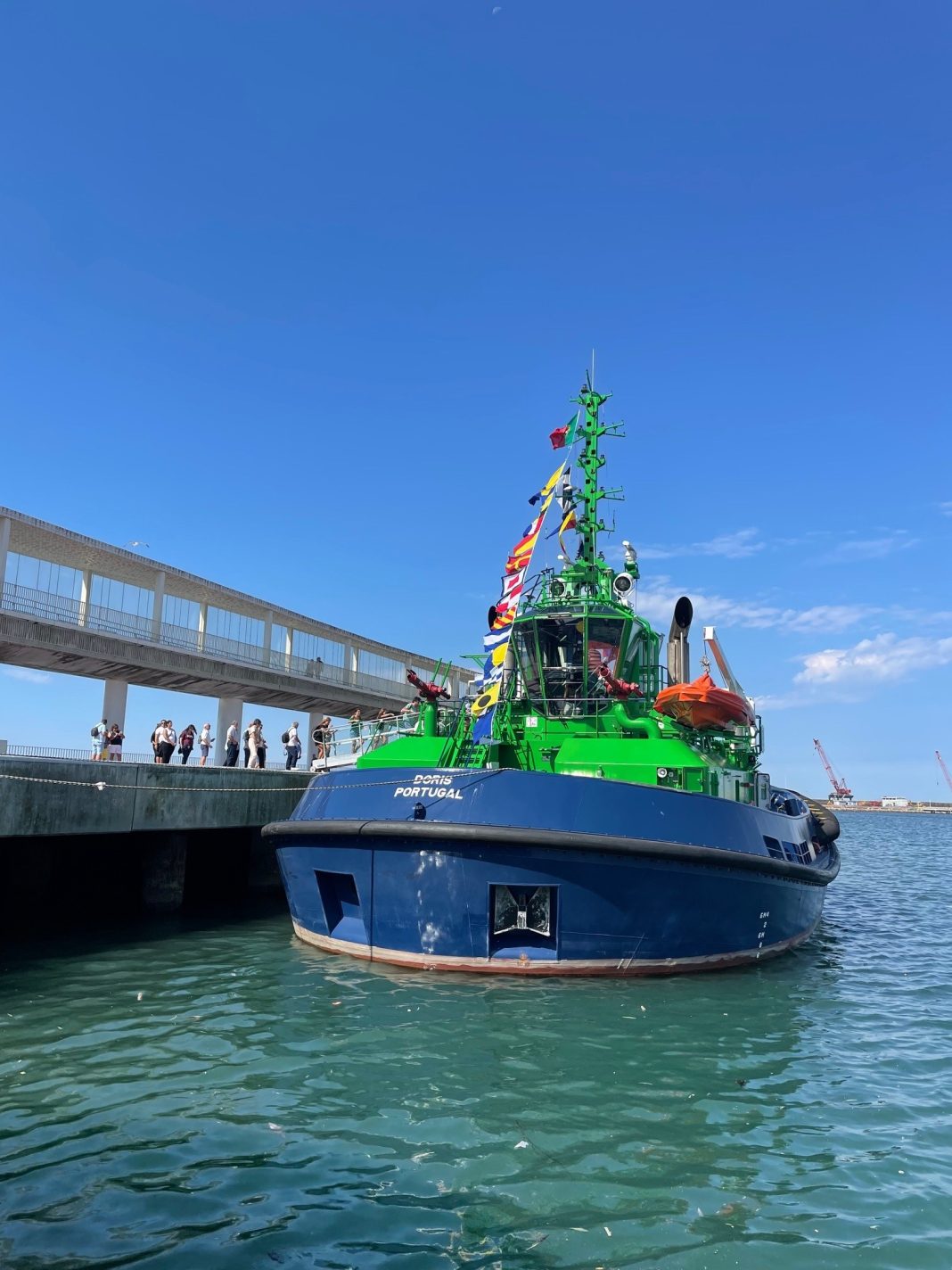Harbour tugs Dóris and Tétis are successfully operating in the Portuguese Port of Leixões, near the city of Porto, following very short term delivery by Damen Shipyards.
The vessels can perform a wide variety of towing, pushing and indirect towing operations that ideally suit the confined space inside the harbour.
Both Reversed Stern Drive tugs are built to the standard Damen design RSD 2513.
After Damen won the tender process from APDL (Administração dos Portos do Douro), the Portuguese port authority of Douro and Leixões late 2021, the shipyard group was able to deliver both swiftly.
Both vessels arrived at the Port of Leixões 13 June 2022 and are operational under Portuguese flag since 21 July this year.
The vessels are equipped with the Damen exhaust aftertreatment system to comply to IMO Tier III emission standards, achieving dramatic reduction of NOx emissions.
As the Port of Leixões is situated nearby urban areas, this is an important feature and a clear goal for APDL. As a special feature agreed for this project, the emissions during the first years of operations will be monitored as well the operational profile.
Analysis of the tug’s operations will provide insight in the possibility of the employment of full electric tugs, that APDL may consider.
Clean but mighty, the RSD 2513 vessels have a 70 tonne bollard pull. The design features Damen’s revolutionary Twin Fin skeg to enhance directional stability and to provide a higher indirect towing force. This makes the vessel ideal for confined harbour spaces.
Renowned for its versatility and manoeuvrability, the RSD Tug 2513 can perform bow to bow towing, as a tractor or escort tug.
Vessels are also equipped with FIFI 1 notation, thus providing an additional safety feature for port operations. Notable safety characteristics include the special safety glass at the wheelhouse, whereas crew comfort is enhanced thanks to reduced noise and vibration levels.
The RSD Tug 2513 vessels are equipped with ‘Damen Triton’, a digitalised remote monitoring platform that collects data from sensors throughout the vessel, helping the operator to maximise operational insight and to improve effectivity, efficiency and utilization.
By using Triton monitoring and Triton Fuel reports, APDL is able to see where they can save fuel, reduce emissions and optimize operations.
Because Triton is able to run various data driven applications, independent of supplier, APDL is ready to use Triton as a state of the art digital platform to support the operation of these vessels.


